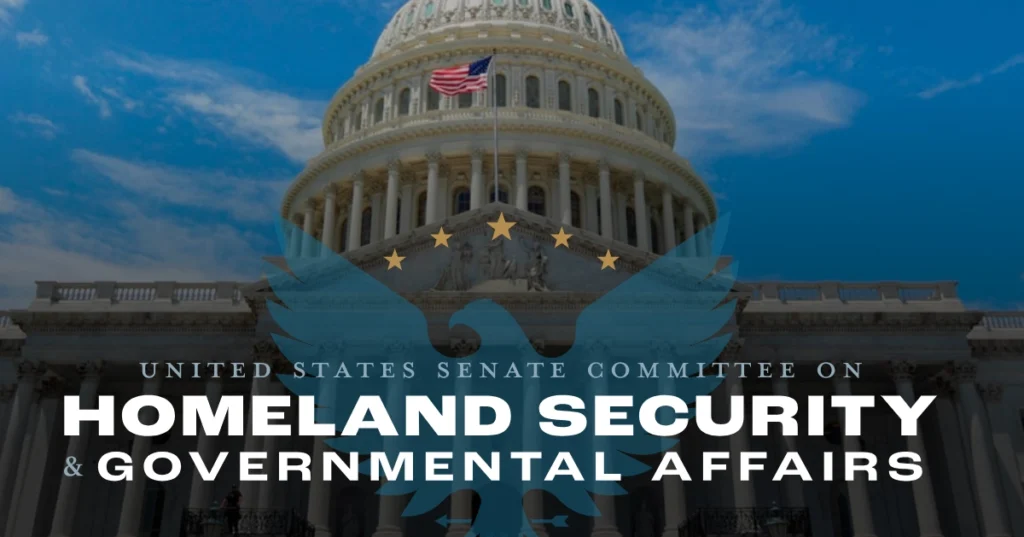Bipartisan members of the U.S. Senate Committee on Homeland Security and Governmental Affairs reintroduced legislation to save taxpayer dollars by improving how federal agencies purchase and manage software. The Strengthening Agency Management and Oversight of Software Assets (SAMOSA) Act requires federal agencies to conduct independent, comprehensive assessments of their software licensing purchases and develop plans to save costs. These assessments will provide Congress, the Office of Management and Budget (OMB), and the General Services Administration (GSA) with critical insights to strengthen oversight of software contracts, streamline operations, and reduce wasteful spending.
Introduced by Senators Gary Peters, a Michigan Democrat and ranking member of the Senate Homeland Security and Governmental Affairs Committee, Bill Cassidy, a Louisiana Republican, Joni Ernst, an Iowa Republican, James Lankford, an Oklahoma Republican, Thom Tillis, a North Carolina Republican, and Ron Wyden, an Oregon Democrat, the proposed legislation builds on the success of Peters and Cassidy’s bipartisan MEGABYTE Act, which was signed into law in 2016.
Federal agencies spend billions of dollars on software purchases and license updates every year. Agencies’ lack of visibility of what they have already purchased, combined with the way vendors sell software, often leads to duplicative purchases and limits agencies’ ability to conduct their oversight of these purchases. The senators’ legislation would help agencies get fairer, more cost-effective deals on their software purchases and achieve important technology modernization goals.
The MEGABYTE Act has saved taxpayers more than US$4 billion by reducing duplicative software purchases and improving software management practices. The SAMOSA Act will build on the MEGABYTE Act and could save taxpayers an estimated $750 million per year.
Last week, President Donald Trump issued an Executive Order directing the federal government to prioritize the advancement of secure software development across all systems and platforms. He prescribed that by August 1, the Secretary of Commerce, acting through the director of National Institute of Standards and Technology (NIST), shall establish a consortium with industry at the National Cybersecurity Center of Excellence (NCCoE) to develop guidance, informed by the consortium as appropriate, that demonstrates the implementation of secure software development, security, and operations practices based on NIST Special Publication 800–218 (Secure Software Development Framework (SSDF).
President Trump further stipulated that by December, the Secretary of Commerce, acting through the director of NIST, in consultation with the heads of such agencies as the director of NIST deems appropriate, shall develop and publish a preliminary update to the Secure Software Development Framework (SSDF).
“By improving how the federal government tracks and manages software purchases, this bipartisan bill will help save taxpayer dollars, strengthen cybersecurity, and promote innovative government operations,” Senator Peters said in a recent media statement. “This commonsense approach ensures agencies can make needed upgrades to better serve the American people while reducing wasteful spending.”
“President Trump wants to cut waste and spend taxpayer dollars wisely,” according to Senator Cassidy. “By consolidating their inventory, this bill forces federal agencies to spend as if taxpayers were spending their own money.”
“The federal government’s ancient computers and outdated, non-competitive bidding process for software contracts cost taxpayers hundreds of millions every year,” said Senator Ernst.“Through the SAMOSA Act, we can bring Washington out of the Stone Age and into the 21st century to save Americans’ hard-earned tax dollars. Let’s pass this bipartisan bill to force federal agencies to take common-sense steps when purchasing software.”
“The SAMOSA Act is government tech policy done right –it will save money and give federal agencies better software,” said Senator Wyden. “I’m particularly pleased the bill takes steps to increase competition for government software contracts, so agencies are less reliant on a few massive vendors.”
Commenting on the proposed legislation, Brian McMillan, vice president for federal affairs at the Computer & Communications Industry Association (CCIA), said that a comprehensive overview of federal software licensing will increase agency coordination and help realize new ways to advance projects, which directly benefit U.S. taxpayers. “We encourage policymakers to recognize the far-reaching positive impacts of this bill,” he added.
“SAMOSA Act will enhance federal agencies’ ability to adopt modern, secure cloud-based technologies by reforming software procurement practices,” said Ross Nodurft, Executive Director of Alliance for Digital Innovation. “This legislation will make government IT procurement more efficient and more cost-effective while improving cybersecurity and the digital services available to American citizens.”
“We are thrilled to see lawmakers coming together to support the SAMOSA Act and address the government waste resulting from restrictive software licensing practices,” said Ryan Triplette, Coalition for Fair Software Licensing executive director. “The coalition applauds Senators Peters, Cassidy, and Ernst for leading on this important issue and working to drive significant cost savings and improvements in federal software management. We look forward to working with lawmakers in both chambers to put this bill on the President’s desk as soon as possible.”
“NetChoice strongly supports this bipartisan effort and commends Senators Ernst, Peters, and Cassidy for reintroducing the SAMOSA Act,” said Steve DelBianco, NetChoice president and CEO. “If passed this year, the SAMOSA Act would be a win for agencies that have been pressured by incumbent software vendors for too long. It will empower competition for contracts in the IT space, saving taxpayers around $750 million per year. SAMOSA will also incentivize companies to improve their product quality, security, and value—a big win for taxpayers.”
In March, a bipartisan group of House lawmakers reintroduced legislation aimed at improving how the federal government buys and manages software to cut waste and save taxpayer dollars. The SAMOSA Act was introduced by Reps. Gerry Connolly, then Democrat from Virginia and ranking member of the House Oversight and Accountability Committee; Pat Fallon, a Republican from Texas; April McClain Delaney, a Democrat from Maryland; and Nancy Mace, a Republican from South Carolina, who chairs the Subcommittee on Cybersecurity, Information Technology, and Government Innovation.

